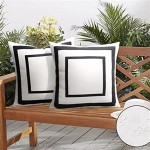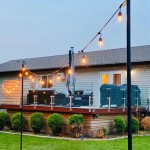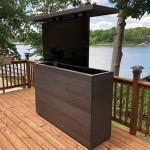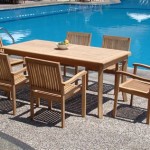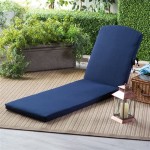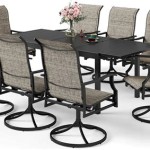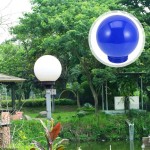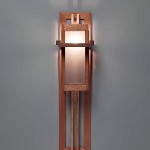Outdoor Pool Clocks and Thermometers: Enhancing the Aquatic Experience
Outdoor pools provide a refreshing escape and a venue for recreation, fitness, and social gatherings. To optimize the pool experience, accurate timekeeping and temperature monitoring are essential. Outdoor pool clocks and thermometers serve not only practical purposes but also contribute to safety, efficient pool management, and overall user satisfaction. This article explores the importance, features, types, selection criteria, and maintenance considerations of outdoor pool clocks and thermometers.
The Significance of Accurate Timekeeping and Temperature Monitoring
Time and temperature are critical factors influencing pool usage and management. Precise timekeeping facilitates structured activities such as swimming lessons, water aerobics, and scheduled pool maintenance. It also enables swimmers to manage their time effectively, whether for training or leisure. Accurate temperature monitoring is vital for swimmer comfort and safety. Water that is too cold can lead to hypothermia, while excessively warm water can promote bacterial growth and discomfort. Furthermore, temperature data informs decisions regarding heating or cooling the pool, optimizing energy consumption and maintaining a comfortable swimming environment.
Moreover, pool clocks and thermometers contribute to a professional and well-maintained appearance. A readily visible clock allows swimmers to track their workouts or simply keep track of their time in the sun. A thermometer provides assurance that the water temperature is within a safe and comfortable range, fostering trust and confidence among pool users.
Types of Outdoor Pool Clocks
Outdoor pool clocks are available in various designs and functionalities to suit diverse needs and preferences. The primary types include:
Analog Clocks: These clocks feature a traditional clock face with hands indicating the time. Analog clocks are often preferred for their classic aesthetic and ease of readability, particularly at a distance. They are typically battery-operated or electric-powered and may incorporate weather-resistant materials to withstand outdoor conditions.
Digital Clocks: Digital clocks utilize electronic displays to show the time in numerical format. They offer enhanced accuracy and readability, especially in low-light conditions, as many models incorporate backlighting. Digital clocks often include additional features such as timers, countdown functions, and temperature displays.
Wireless Clocks: Wireless clocks operate on radio frequencies or Wi-Fi, synchronizing with a master clock or time server. This ensures consistent and accurate timekeeping across multiple clocks in a pool facility. Wireless clocks minimize the need for manual adjustments and are particularly beneficial for large pool complexes or recreational centers.
Timer Clocks: These specialized clocks are designed for timing swimming events, races, and training sessions. They typically feature large, easy-to-read displays, precise timing mechanisms, and remote control capabilities. Timer clocks are essential for competitive swimming environments and organized aquatic activities.
Types of Outdoor Pool Thermometers
Outdoor pool thermometers are essential instruments for assessing and maintaining water temperature. They come in several forms, each with its own advantages and limitations:
Floating Thermometers: These thermometers are designed to float on the water's surface, providing continuous temperature readings. Floating thermometers are typically made of durable plastic or rubber and are easy to deploy and retrieve. They offer a simple and cost-effective way to monitor pool temperature.
Submersible Thermometers: Submersible thermometers are designed to be fully submerged in the water, offering more accurate temperature readings at various depths. They are often used in conjunction with pool filtration systems or circulation pumps to ensure consistent temperature monitoring throughout the pool.
Digital Thermometers: Digital thermometers utilize electronic sensors to measure water temperature and display the readings on an LCD screen. They provide precise and instantaneous temperature information and often include features such as maximum and minimum temperature recording, temperature alerts, and remote monitoring capabilities.
Infrared Thermometers: Infrared thermometers utilize infrared radiation to measure water surface temperature without physical contact. They are quick and convenient to use, allowing for rapid temperature assessments. Infrared thermometers are particularly useful for large pools or areas where access is limited.
Chemical Test Strip Thermometers: Some chemical test strips for pool water contain a thermometer section. This provides a convenient way to check both the water temperature and chemical balance simultaneously. While not as precise as dedicated thermometers, they offer a quick reference point for routine pool checks.
Key Features to Consider When Selecting Outdoor Pool Clocks and Thermometers
Selecting suitable outdoor pool clocks and thermometers requires careful consideration of several factors to ensure optimal performance and longevity. These factors include:
Weather Resistance: Outdoor pool clocks and thermometers must be able to withstand exposure to sunlight, rain, humidity, and temperature fluctuations. Look for models constructed from UV-resistant materials and sealed against moisture intrusion. IP ratings, such as IP65 or IP67, indicate the degree of protection against water and dust.
Readability: The clock or thermometer display should be easily readable from a distance, even in bright sunlight. Consider the size and clarity of the digits or hands, as well as the presence of backlighting or contrast-enhancing features.
Accuracy: Accurate timekeeping and temperature readings are essential for effective pool management. Choose clocks and thermometers that are calibrated to provide precise and reliable measurements. Look for certifications or standards that validate the accuracy of the instruments.
Durability: Pool clocks and thermometers should be constructed from robust materials that can withstand accidental impacts, chemical exposure, and general wear and tear. Consider the quality of the casing, lens, and other components.
Power Source: Clocks and thermometers are powered by batteries, electricity, or solar energy. Battery-operated models offer portability and ease of installation, while electric-powered models provide continuous operation. Solar-powered models are environmentally friendly and can reduce energy costs.
Mounting Options: Clocks and thermometers can be mounted on walls, fences, posts, or directly into the ground. Choose a mounting option that is appropriate for the pool environment and ensures easy visibility and accessibility.
Additional Features: Some clocks and thermometers offer additional features such as timers, alarms, temperature alerts, remote monitoring capabilities, and data logging. Consider which features are most valuable for your specific needs and preferences.
Installation and Maintenance of Outdoor Pool Clocks and Thermometers
Proper installation and maintenance are crucial for ensuring the longevity and accuracy of outdoor pool clocks and thermometers. The following guidelines should be followed:
Installation: Install clocks and thermometers in a location that is easily visible and accessible, but also protected from direct sunlight and extreme weather conditions. Follow the manufacturer's instructions for mounting and wiring. Ensure that all connections are secure and weather-resistant.
Calibration: Calibrate clocks and thermometers periodically to ensure accuracy. Use a reference standard, such as a certified thermometer or time server, to verify the readings. Adjust the calibration settings as needed.
Cleaning: Clean clocks and thermometers regularly to remove dirt, debris, and algae. Use a soft cloth and mild detergent. Avoid using abrasive cleaners or solvents, as they can damage the display or casing.
Battery Replacement: Replace batteries in battery-operated clocks and thermometers as needed. Use the correct type and size of battery. Dispose of used batteries properly.
Protection from Freezing: During the winter months, protect clocks and thermometers from freezing temperatures. Remove them from the pool area or cover them with insulated materials. Drain any water from submersible thermometers to prevent damage from ice formation.
Regular Inspection: Inspect clocks and thermometers regularly for signs of damage or wear. Replace any damaged or worn components. Check the wiring and connections for corrosion or fraying.
Storage: When not in use, store clocks and thermometers in a dry and protected location. Cover them with dust covers or store them in their original packaging.

Acurite 9 Indoor Outdoor Round Double Sided Hanging Clock

Outdoor Patio Garden Double Face Weather Gauge Pedestal Clock Analog Thermometer

Pool And Patio Clocks Thermometers

Srstrat 12 Quartz Retro Indoor And Outdoor Maritime Weather Station Clock Waterproof

Springfield 92670 14 At The Pool Poly Resin Clock With Thermometer

Swimming Pool Patio And Outdoor Clocks Thermometers

Clocks Thermometers Pool Accessories Spa Supplies

Pool Clocks And Thermometers The Lifeguard Store

12 Terra Cotta Clock Thermometer Poolmaster

Classic Pineapple Clock Thermometer For Indoor Outdoor Use With Easy Hang Hook

